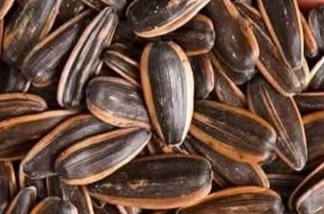Impressive Benefits of Sunflower Seeds1. Excellent Source of Healthy FatsSunflower seeds are rich in polyunsaturated and monounsaturated fats, which are heart-friendly and help reduce bad cholesterol (LDL).2. Packed with ProteinJust a small handful can give you 5–7 grams of plant-based protein, perfect for muscle growth and repair.3. Loaded with Vitamin ESunflower seeds are one of the best natural sources of vitamin E — a powerful antioxidant that protects your skin, eyes, and immune system.4. Supports Heart HealthThanks to magnesium, potassium, and healthy fats, sunflower seeds help regulate blood pressure and lower the risk of cardiovascular disease.5. Helps Control Blood SugarTheir fiber content slows down sugar absorption, making sunflower seeds useful for people with diabetes or insulin resistance.6. Promotes Healthy SkinVitamin E, zinc, and selenium work together to fight acne, reduce inflammation, and support collagen production.7. Boosts Mood and Brain FunctionSunflower seeds contain tryptophan, a precursor to serotonin, helping improve mood and reduce anxiety naturally.8. Rich in AntioxidantsChlorogenic acid and other antioxidants in sunflower seeds help combat oxidative stress and support overall health.⚠️ 8 Potential Risks and Side Effects of Sunflower Seeds9. High in CaloriesAlthough nutritious, sunflower seeds are calorie-dense. Overeating can lead to unwanted weight gain.10. May Be High in SodiumSalted or flavored versions often contain excessive sodium, which can raise blood pressure and harm heart health.11. Risk of Heavy Metal ContaminationSunflowers can absorb cadmium from the soil. Excessive, long-term consumption may affect kidney health.12. May Cause Digestive IssuesEating too many seeds (especially with the shells) can cause bloating, constipation, or stomach pain.13. Possible Allergic ReactionsAlthough rare, some people may experience skin rashes, breathing issues, or anaphylaxis from sunflower seed allergy.14. Risk of Acrylamide FormationWhen roasted at high temperatures, sunflower seeds may develop acrylamide — a potentially carcinogenic compound.15. Dental Damage from ShellsCracking hard shells with your teeth regularly can lead to dental wear or damage.16. Can Interact with MedicationsHigh vitamin E levels may interfere with blood thinners or affect people with bleeding disorders.🌻 How Should We Use Sunflower Seeds Safely?Choose Raw or Lightly Roasted: Avoid heavily salted, flavored, or overly roasted versions.Watch the Portion Size: Stick to 1–2 tablespoons daily to enjoy the benefits without overdoing the calories.Buy Shelled Seeds: This avoids the risk of dental issues and reduces digestive strain.Store Properly: Keep in a cool, airtight container to prevent rancidity.Include in Recipes: Sprinkle on salads, mix into oatmeal, blend into smoothies, or bake into bread and granola bars.Consult Your Doctor: If you have allergies, kidney issues, or take medications, check before consuming regularly.✅ Conclusion: Use Wisely for Maximum BenefitSunflower seeds are a nutritional powerhouse when consumed in moderation. They offer numerous benefits — from heart health to glowing skin — but can also pose risks if eaten in excess or poor-quality forms. Use them smartly, and your body will thank you.
Secrets About the Benefits and Risks of Sunflower Seeds – How Should We Use Them?
